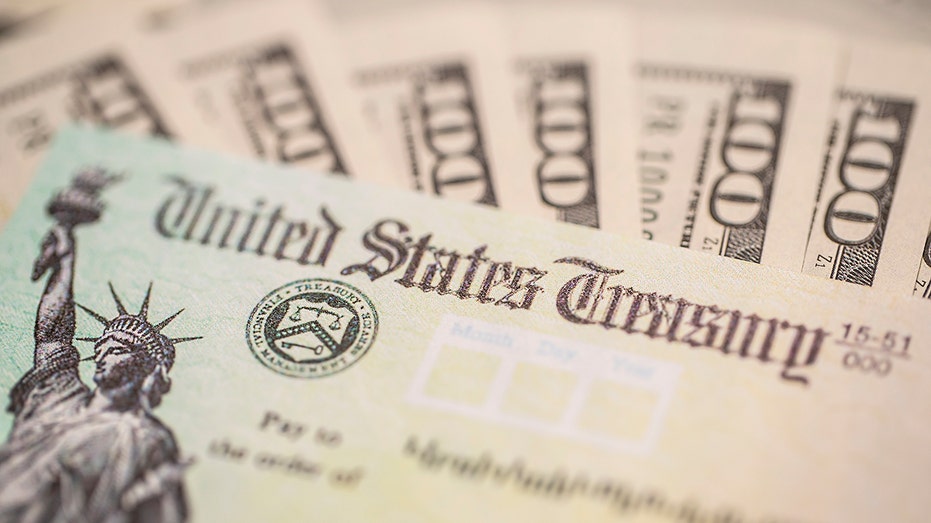The child allowance welfare trap
A new study shows the huge new federal payments will shrink the incentive to work
Democrats are deciding what to keep or cut in their $5 trillion spending bill, and here is one proposal that Sen. Joe Manchin ought to excise: Converting the child tax credit into a universal basic income, which will discourage the work and advancement essential to escape poverty. New research this week suggests that the bill could drive more than one million workers from the labor force.
Democrats are offering a $3,600 allowance for children under age six and $3,000 for ages six through 17, extending through 2025 provisions passed earlier this year in a Covid relief bill. The allowance, previously $2,000, is "fully refundable" in 2021 to those who pay no income tax. Someone who earned $0 last year can receive $7,200 for two children under six—with part of it paid in monthly checks from the Internal Revenue Service.
DEMOCRATS TO LIMIT BIDEN'S PLAN GIVING IRS MORE INFO ON BANK ACCOUNTS
Democrats say this is merely about giving hard-working families extra cash for groceries and gas. "Millions of families are trapped in a chasm between stagnant incomes and rising costs," Sen. Michael Bennet (D., Colo.) wrote us recently after we critiqued this trillion-dollar entitlement. Sen. Sherrod Brown (D., Ohio) suggested we were "out of touch," arguing it’s ridiculous to think families will quit "jobs in droves" because of the checks.
The gentlemen are hiding the ball. Prior to the expansion, anyone with a mere $2,500 in annual earned income could start to qualify for the credit, refundable up to $1,400 per child. The benefit became richer as parents earned more — to avoid punishing work. The $2,000 benefit, once phased in, held steady until a married couple earned $400,000.
University of Chicago economists this week looked at how the larger and fully refundable credit would influence the incentive to work. The result? Some 1.5 million workers, or 2.6% of all working parents, could exit the labor force. Is that the definition of "droves," Senator Brown?

Democrats are deciding what to keep or cut in their $5 trillion spending bill, and here is one proposal that Sen. Joe Manchin ought to excise: Converting the child tax credit into a universal basic income, which will discourage the work and advanceme (iStock)
Democrats are also wildly overselling their claims that the credit will slash child poverty. "The decline in employment and the consequent earnings loss," the study notes, "would mean that child poverty would only fall by 22% and deep child poverty would not fall at all with the CTC expansion."
The cost for such results will be $1 trillion over 10 years, as these provisions will never be allowed to expire in 2025 as Democrats pretend in their bill. Matt Weidinger of the American Enterprise Institutehas pointed out that of the credit’s $556 billion cost as officially scored by the Joint Tax Committee, some $421 billion is "outlays." In other words, three-quarters of the cost isn’t a "tax cut" at all. It is a cash welfare payment, like food stamps or housing assistance.
MISSOURI JOINS NEBRASKA IN IRS SNOOP PUSHBACK
Sending unconditional federal checks will also interfere with state programs that do the difficult work of helping people in need find jobs, safe child care, or reliable transportation. These interactions are essential to identifying child abuse or helping families extract child support from an absent parent. Checks on autopilot will mean more children in homes attenuated from society, houses "with the shades drawn," as Robert Doar, who formerly ran New York City’s welfare programs, puts it.
Work in return for time-limited benefits was the animating ethic of the 1996 welfare reform that a bipartisan Congress passed and Bill Clinton signed. Welfare should be "a second chance, not a way of life," as Clinton said, and it was an historic policy success. Welfare rolls declined and so did poverty.
Most Americans seem to understand this principle. According to a Morning Consult poll this week, only about one-third of voters said the payments should be permanent, including only half of Democrats (52%). Half of independents said the payments shouldn’t be permanent.
GET FOX BUSINESS ON THE GO BY CLICKING HERE
They are wise to oppose a policy that will consign millions of Americans, including vulnerable children, to a life of diminished opportunity. Perhaps Republicans could even find the courage to follow the public and make the moral case against this child poverty trap.




















